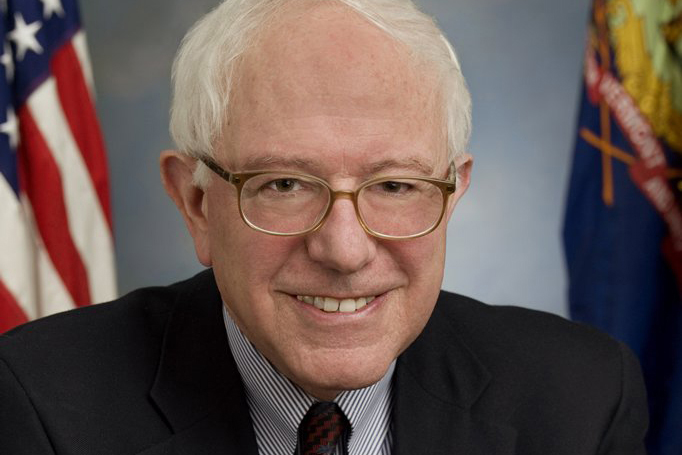
What their election does not mean
Last night’s Republican primary runoff in South Carolina plausibly clears the way for Nikki Haley to join Bobby Jindal as governors with an epochal distinction: two Indian Americans leading two Southern states. Belonging to a community that makes up less than a percentage of the U.S. population, their accomplishment is momentous, even more so as Haley would be the first female governor of her state. Coupled with President Obama’s own astounding win last year–he carried North Carolina, Virginia and Florida–a credible argument could be made that in politics, at least, a post-racial South is emerging.
Haley endured ludicrous, unsubstantiated allegations of infidelity, and she and Jindal both faced down racial slurs and epithets on their road to victory. But listen to the buzz around Haley’s improbable rise and Jindal’s electoral success, and what is abundantly clear is that a politically post-racial America does not mean that a pluralistic America has emerged.
As any observer knows by now, say what you will about Haley and Jindal, but don’t say that they are not Christian. Ask about the Dharma religions (Hinduism, Buddhism, Sikhism and Jainism) of their childhood and their parents–Hinduism for Jindal and Sikhism for Haley–and be referred to Haley’s website where she writes of “living for Christ” or Jindal’s own striking testimonials to his conversion and the Catholic faith.
This year, eight Indian Americans, most of whom are Hindu, are running for national or statewide office–a record number–and the questions of faith become increasingly urgent. The media storyline–“Haley and Jindal triumph despite questions about their faith”– leaves millions of America’s adherents of Dharma faiths stone cold: what is so miserably wrong and unelectable in being a Hindu, Sikh, Buddhist or Jain?
American Muslims faced this cruel non-acceptance, of course, as President Obama’s keepers were made to combat the disingenuous allegation that he could possibly be a Muslim as they put his church-going Christian credentials front and center. The pigment of Obama’s, Jindal’s or Haley’s skin does not seem to matter, goes the popular narrative, but Christian faith is a foregone criterion for electability. A religious litmus test is clearly in play.
This very American phenomenon is perhaps not surprising considered in the context of very overt demonstrations of faith now de rigueur for today’s politicians. From Sarah Palin’s channeling of the church lady to U.S. Rep. John Shimkus’s (R-IL) daily Bible tweets, and from South Carolina Republican-dominated legislature’s failed sponsorship of a Christian themed license plate to Texas Governor Rick Perry’s Supreme Court challenge to display the Ten Commandments on state capitol grounds, too many politicians are using their bully pulpits to bully those of other faiths.
When one family member so publicly repudiates their religion, especially when culture, religion and traditions are as intertwined as they are for Dharma faiths, there are inevitably painful conflicts that arise within families–even communities. Many Hindus and Sikhs may question why Jindal and Haley’s disavowals need be so public and unflinching. Religious conversion should be a personal sojourn, but Jindal and Haley’s capitulation to an evangelical insistence on public religiosity and disavowals of their ancestral faiths are galling to many.
Six years ago when Haley first won a state legislature seat in South Carolina, she spoke of a more syncretic embrace of religion saying that her family attended both Sikh services and those in her husband’s Methodist Church. Under the withering glare of the far right mandates of South Carolina politics, her Christianity took a recent hard turn with an emphatically evangelical Christian dialect. She gets a perfect rating from anti-abortion groups, she advocates deportation of illegal immigrants–a tea party darling winning a coveted Palin endorsement.
Jindal’s embrace of Catholicism, meanwhile, occurred in high school, even as his parents were leaders of a nascent Hindu community in Baton Rouge in the 1980’s. In the news today for his opposition to the deep water drilling moratorium Obama tries to impose, he stands to the right of most Americans in his embrace of conservative principles similar to Haley’s and even in his advocacy of Intelligent Design promoted by the evangelical movement in his state’s schools.
The Indian American community may be politically mature enough to realize that Indian Americans in high office necessarily serve their constituency and not the ethnic community from whence they came. But the need to “prove” religious fidelity can be unnerving. In 2007, when 358 Christian, Jewish and Muslim members of the U.S. House passed a non-binding resolution recognizing the historical significance of the Hindu and Sikh festival of Diwali, Jindal, then a member of the House, was one of only a handful of legislators that publicly abstained.
Jindal and Haley, as brilliant and dynamic trailblazers, have thrown open the doors to political office, laying waste to minefields of ethnic slurs and perverse allegations that naysayers put in their way. Race is not an impediment to high office, and that is something to celebrate, no doubt. But in their public remonstrations of their parent’s faiths, Jindal and Haley tell well over three million Hindu and Sikh Americans that their time has not yet come as people of faith. And in their absolute denial of their religious heritage, they deny something far greater: a society that privileges pluralism–that no one religion has the monopoly on Truth–and that Hindus, Sikhs, Muslims, Pagans, agnostics and atheists may invest differently towards the afterlife, but can live in this life with all of the humanity, generosity and yes, frailty of any of those that presume to lead our states or nation today.







































